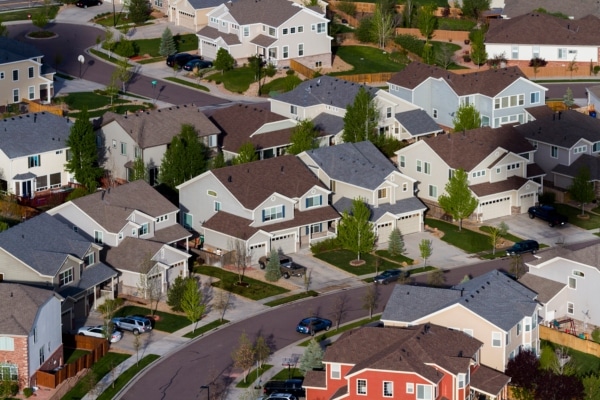December 11, 2018
Considerations When Looking to Buy in Suburbs vs. Exurbs

Every level of proximity to a major urban area has its share of benefits and drawbacks. The urban milieu offers its proponents the advantages of direct proximity: to job centers and employers, to entertainment and culture, to high-quality hospitals. The rural zone offers the opposite: total privacy, personal space, the prerogative to make money off of produce or livestock. But some property owners want to live in a scenario that offers a grey-zone, mixing the benefits offered by these two poles of the population-concentration spectrum. These are the benefits and drawbacks offered by the suburbs and the exurbs.
Whereas the urban zone sees a high concentration of property owners clustered on rather small plots of land, whether in apartments and condominiums or small, closely-built homes, the suburbs and exurbs offer a bit of room to stretch out. Here, the plots are generally larger, the dwellings likewise more roomy, the sounds less frequent or strident, the pollution and litter lighter in concentration. Yet there are important differences between the suburbs and exurbs that bear careful consideration if you’re thinking about making a move to one of these zones of activity.
First and foremost: suburbs are found just outside the city, while exurbs are a bit further out, beyond the suburbs and on the edge of the truly rural zone.
Exurbs can often define that lightest of grey areas, where farmland or the beach are truly adjacent. An automobile of some sort is a practical necessity, but you’re not dealing with much in the way of traffic—and traffic jams are almost unheard of. Privacy and quiet are the true hallmarks of this zone of activity. Crime is so rare as to be almost a non-issue. But where walkability is concerned, you’re going to find problems, particularly if you are elderly or have children: sidewalks are almost unheard of. The low population density simply doesn’t call for the expenditure. Nor does this relative isolation make things easy on the elderly who lose their ability to drive.
Suburbs are closer to the city, and while you generally need a car to make the most of this zone as you do in the exurbs, the suburbs often are nonetheless quite walkable. They also host their own cluster of economic activity in direct proximity: the grocery stores, box stores, gas stations, and schools that are hallmarks of this way of life and may offer a sense of community. And all of this with some privacy, within easy driving reach of the culture the urban zone provides. As a result, you may encounter a traffic jam here and there—particularly on the highways and major arteries, which are also generally quite close by and may impose a low hum of ongoing background noise. It’s no wonder that Americans of every generation tend to favor this zone when starting a family.
Whether a property is urban, suburban, exurban, or rural, title is nonetheless at the heart of every real estate transaction. At Topouzis & Associates, P.C., not only do we offer the services that ensure your title gets conveyed clear of defects, we supply purchasers with Owner’s Policies of title insurance. Contact us if you want your property transfer in Cranston, Rhode Island; Springfield, Massachusetts; or Miami, Florida to go through without a hitch—both before and after closing.
